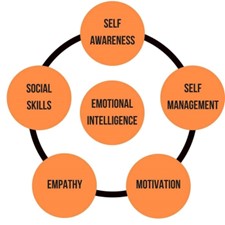Admissions Open
Now accepting applications for the 2026-2027 Admission Season. Limited spaces available in some year groups for the 2025-2026 school year. Apply Now!

For a long time (up until the 1980s), intelligence was mostly measured by test scores, use of impressive language, essay writing and whether or not you could do well in the – at the time popular game of Trivial Pursuit! Schools were places that reported on children’s academic progress, and universities were sought after with the notion that A grades and high percentages in tests were needed to secure a place. Children needed to know ‘things’ and were placed in ‘sets’ according to achievement and parents would find the best schools for their children based on the level of academics that were taught there.
Yes – this is all still relevant today: Parents want the best education for their children; children are encouraged to strive for excellence in all academic areas; test scores and essays still matter. The difference is, nowadays, schools and universities equally value something other than intelligence in those high grades and percentage scores: they value EQ.
What is EQ? It sounds a lot like IQ. But what exactly is it? The dictionary definition states:
EQ is the abbreviation for emotional quotient, a (notional) measure of a person's adequacy in such areas as self-awareness, empathy, and dealing sensitively with other people.
I love using dictionary definitions to get to the core of meanings, and I especially love the last few words that are written here:
dealing sensitively with other people.
We are now living and learning in a world that places value on having emotional intelligence. Thank goodness! If it wasn’t for this area of intelligence, I am not sure how our world would feel now after the global events of 2020 and with the burdens and heartache that were on the majority of society’s shoulders. As a daughter, wife, mum, friend, educator and leader, I know I certainly demonstrated my EQ during this time and had it reciprocated by significant people in my life.

So, what does it mean to value people who ‘deal with others sensitively’? What traits are seen in people who ‘score highly’ in this area? Whose ‘coursework’ on how they behave, speak and act with other people gets an ‘A grade’. Now as we know, there is no coursework in life, there are no grades given out when you ‘deal with someone sensitively’, nor any tests… or is there?
In 1990, psychologists John Mayer (now at the University of New Hampshire) and Peter Salovey of Yale coined the term Emotional Intelligence which was based around our emotions and us being able to:
This was proven to lead to not only personal fulfillment and happy relationships but also leadership success.
A science reporter for the New York Times Daniel Goleman, pushed this idea further and created five strands that demonstrate EQ. These strands are:

Having had this research and information in our world for the past 30 plus years, has given way to a change in what is included in education at schools, and it has broadened what universities are looking for in applicants. Schools now teach about regulating emotions and helping us label feelings in ourselves. They also help children find what motivates them to reach their goals and they specifically teach one of the most vital social skills - EMPATHY.
Universities are looking for students who have the self -awareness to assess their own mental health; have intrinsic motivation to meet deadlines and aim high; who are able to explain their emotions and know how to safely regulate themselves in ways that aren’t harmful to anyone; and have the social awareness to show compassion to the diverse population around them.
My biggest realization that EQ has become a ‘thing’ and a ‘thing’ that is really valued by the world, was when I recently participated in a Senior Leadership Program. Part of the program focused on EQ: one whole module dedicated to the importance and relevance of EQ in leadership. I discovered that the world’s big business/organization leaders are now expected to have high levels of EQ in order for to be successful as a leader and as a business/organization. I learned that having EQ has been proven to improve the effectiveness of leaders and is linked to those leaders who have strong performance. For someone who has always valued people, learning about people, and supporting people emotionally, this was incredibly validating to know that my natural skillset and abilities are a vital part in my own leadership and in the success of the leaders I develop. Having an ‘open door’ is essential when leading others; compassion and empathy should be a major part of daily practice; knowing how to regulate myself emotionally before interacting with people or sending emails; learning about the people I work with, and the community I serve. Being kind.

Having wider circles in the world, not just in an education setting, having an awareness of the importance of EQ, shows the direction the world is heading, and noticeably, the business world; it’s exciting to think where our world could head with the leaders who care, who listen and who empathize. To have the knowledge that it is a vital characteristic in leadership is a great example, especially when our future leaders are currently the world’s children. These children will go on to lead schools, businesses, organizations, departments, their own families, and even the world! I feel very happy and satisfied to know that my efforts as an educator - to teach our future leaders the importance of EQ in society and their own and others’ personal success, is vital and necessary. If we are to have emotionally safe environments where people can live and work their best life - being supported, connected and understood by those with the power to lead us – then I wonder what we could achieve as a society.
It is time we all played Trivial Pursuit - the EQ version.
Kirsty Gallo
Director of Inclusion, Safeguarding & Culture